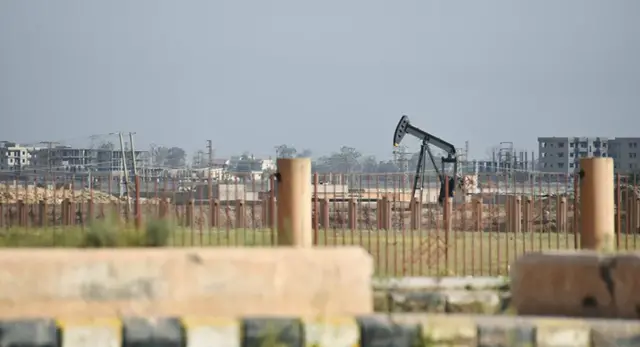By APD writer Lu Jiafei
Washington, Feb.7 (APD) --Thanks to his boss Donald Trump’s nativism and protectionism, U.S. Secretary of State Rex Tillerson’s weeklong goodwill tour of Latin America was doomed from the very beginning. But thanks to “imperial” China, Tillerson found a scapegoat for U.S. failure to get the region to rally behind Trump.
U.S. Secretary of State Rex Tillerson
For a country with long history of imposing imperialism in the Americas, its top diplomat’s false accusation was the latest of a series of ominous signs that the Trump administration is seeking Cold War - era relationship with China.
However, Trump and his underlings should keep in mind that Cold War mentality does not serve U.S. national interests.
On his first multinational tour of Latin America, Tillerson faced an uphill battle - if not impossible mission - to stabilize U.S. teetering standing in the region.
According to a recent poll by Gallup, Latin American’s approval ratings of U.S. leadership plummeted from 49 percent in 2016 to less than one quarter in 2017. Moreover, a mere 16 percent of the population in the region approves of Trump’s job performance.
The New York-based Time magazine's February cover featuring an illustration of "America Alone" has drawn attention from all over the world.
The Trump administration should look inwards for the answer to why Latin Americans bear grudges toward them, because Trump’s incessant immigration rhetoric, culminating in his recent denigration of one Latin America country as a “shithole” nation, and his disruptive “America First” trade initiatives have exasperated the ties with the region long before the bellicose man’s inauguration.
Even when Tillerson was on his trip in Mexico, Trump’s toxic views about the Latin American countries lingered on, proclaiming that “these countries are not our friends” because “they’re pouring drugs into our country and they’re laughing at us.”
Then, Tillerson’s own statements added insult to injury. In a speech on the eve of his five- nation tour, Tillerson not only extolled the controversial Monroe Doctrine, a U.S. foreign policy used by past administrations to justify U.S. military interference in Latin America, but also suggested that Venezuela’s leadership could be toppled by its own military.
Country flags for the Summit of the Americas seen in Panama City, on April 6, 2015.
Rather than reflecting on how U.S. long- time flawed foreign policy of armed intervention and recent surge of populism at home have harmed relations with Latin American nations, the United States has regrettably chosen to use defamation of China as a distraction from its troubled image in Latin America.
By doing that, Washington resorted to the dangerous Cold War mentality of “it’s either us or them.”
“Today China is getting a foothold in Latin America. It is using economic statecraft to pull the region into its orbit,” said Tillerson in the same speech, accusing China of being “new imperial powers that seek only to benefit their own people.”
Trump in China
What Tillerson referred to is China’s flagship development project of the Belt and Road Initiative, which has been warmly welcomed by countries in Latin America.
Unlike Trump’s flawed “America First” agenda, which puts an overwhelming emphasis on U.S. interests alone and unilateral actions, Belt and Road favors the development of connectivity and infrastructure, the very things urgently needed by Latin American nations.
It is not the first time the Trump administration has articulated its intention to seek completion, not collaboration, with China in the past months.
In its 2018 National Defense Strategy, the Pentagon claimed that the focus has shifted from counter- terrorism to preparing for “threats” from China and Russia, falsely arguing that Beijing wants to displace Washington to achieve global preeminence.
In an earlier document on its national security strategy, the White House even labelled China as “revisionist” power and “competitors” eying to erode U.S. advantages.
The desperation of Washington to safeguard its status of the world’s sole superpower is tangible. But today’s world is a place where shared power is favored to create shared future.
Wittingly or not, the White House under the leadership of Trump is forcing Latin America and the whole world to make a choice. But the options are not between the United States and China. Rather, it’s between “America Alone” and shared future.
Lu Jiafei, researcher of APD Institute. After spending one year in Palestine covering the Israeli-Palestinian conflict between 2013 and 2014, Lu moved to Washignton, D.C. and covered the 2016 U.S. presidential election till the very end of Donald Trump’s upset victory. He is a political contributor to APD.
(ASIA PACIFIC DAILY)
 简体中文
简体中文

